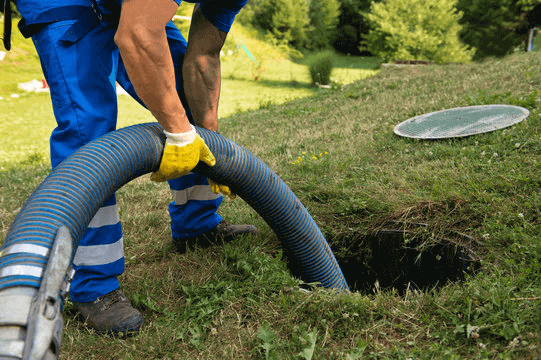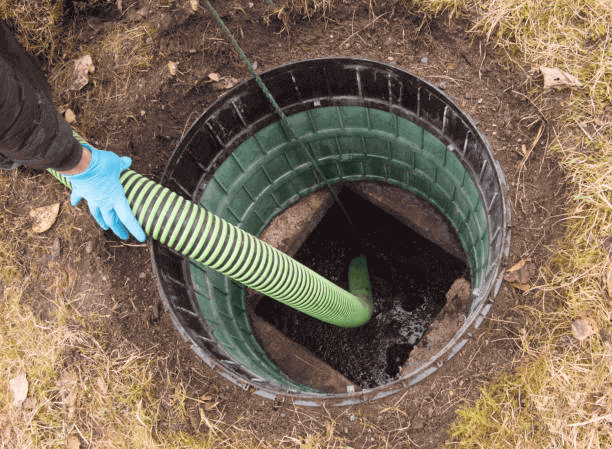Homeownership comes with a myriad of responsibilities, and maintaining essential systems like septic tanks is crucial for a smooth and comfortable living experience. Fayetteville, AR, known for its natural beauty and vibrant community, is home to many residents who rely on septic tanks for wastewater management.
However, a common concern among homeowners is whether their home insurance provides coverage for potential septic tank issues. In this comprehensive exploration, we delve into the intricacies of home insurance in Fayetteville, AR, and analyze whether it extends to cover septic tank-related problems.
Importance of Septic Tank Maintenance:
Septic tanks serve as crucial components in areas lacking centralized sewage systems, particularly in rural and suburban regions like Fayetteville, AR. These underground systems are instrumental in treating and disposing of household wastewater, playing a pivotal role in maintaining a healthy living environment.
Regular maintenance is imperative to prevent potential issues like backups, leaks, or complete system failures. Such problems not only result in costly repairs but can also pose environmental hazards, underscoring the importance of proactive care for these essential systems.
Given the indispensable role of septic tanks, homeowners must be cognizant of the financial protections offered by their home insurance policies. Unfortunately, standard policies typically do not cover routine maintenance or wear and tear, leaving homeowners responsible for the upkeep of their septic systems.
Therefore, understanding the nuances of coverage and exploring additional options, such as endorsements or riders, becomes essential for homeowners in Fayetteville, AR, seeking to secure their properties and mitigate potential risks associated with septic tank issues.

Standard Home Insurance Coverage in Fayetteville, AR:
Home insurance is designed to protect homeowners from a range of perils such as fire, theft, vandalism, and natural disasters. However, policies can differ, making it crucial for homeowners in Fayetteville, AR, to carefully review their specific coverage. In the context of septic tanks, standard home insurance policies typically do not cover routine maintenance or wear and tear.
This means that homeowners bear the responsibility for the regular upkeep of their septic systems. Understanding the limitations of coverage is vital for residents, prompting them to explore additional options or riders that might address potential issues with their septic tanks.
As the maintenance of these systems falls outside the scope of standard policies, homeowners must be proactive in safeguarding their properties by considering specialized coverage for septic-related concerns.
Dwelling Coverage and Perils:
Dwelling coverage stands as a cornerstone in home insurance, safeguarding the structural elements of a residence such as its foundation, walls, roof, and built-in appliances. This coverage proves invaluable in mitigating risks associated with perils like fire, theft, vandalism, and natural disasters.
However, it is important for homeowners in Fayetteville, AR, to note that dwelling coverage often comes with exclusions. Specifically, damage resulting from lack of maintenance or gradual deterioration is typically excluded from the protection provided.
Septic tank issues arising from neglect or age-related wear may fall squarely within this category of exclusions. Homeowners need to be aware that routine maintenance and care for their septic systems are their responsibility, and any resulting damage may not be covered by standard dwelling coverage.
This underscores the importance of a comprehensive understanding of policy exclusions, encouraging homeowners to explore additional coverage options or riders that may specifically address potential septic tank-related challenges.
Additional Structures Coverage:
Many homeowners in Fayetteville, AR, have additional structures on their properties, such as sheds, garages, and, in some cases, septic tanks. Some home insurance policies provide coverage for these additional structures, but again, the coverage may be limited to specific perils and may not extend to problems resulting from inadequate maintenance.
Personal Property Coverage:
Personal property coverage in home insurance protects the belongings inside the home, including furniture, electronics, and appliances. However, this coverage is unlikely to extend to damages caused by septic tank issues. Items damaged as a result of a septic system failure may not be covered unless a specific endorsement or rider addressing such scenarios is added to the policy.
Exclusions and Limitations:
Understanding the exclusions and limitations of a home insurance policy is crucial. Septic tank-related problems that result from factors like age, lack of maintenance, or improper use may be explicitly excluded. Homeowners should carefully review their policy documents and discuss any uncertainties with their insurance provider to ensure clarity on coverage details.
Optional Coverage and Riders:
Some insurance companies offer optional coverage or riders that homeowners can add to their policies to address specific needs. In the context of septic tanks, there might be an option for an endorsement that provides coverage for damages or failures related to the septic system. However, this often comes at an additional cost, and homeowners should weigh the benefits against the premiums to determine its necessity.
Environmental Hazards:
A malfunctioning septic tank can pose environmental risks, such as groundwater contamination. Home insurance policies may have provisions for environmental hazards, but coverage specifics can vary. Homeowners concerned about potential environmental liabilities related to their septic systems should discuss this with their insurance provider and explore additional coverage options if necessary.
Local Regulations and Requirements:
Fayetteville, AR, may have specific regulations and requirements related to septic tank installations and maintenance. Homeowners should be aware of local ordinances and compliance standards, as failure to adhere to these regulations may impact insurance coverage. Maintaining compliance with local codes can contribute to a more secure and insurable property.
Maintenance and Prevention:
While home insurance may not cover routine septic tank maintenance, taking proactive steps to prevent issues is within the homeowner’s control. Regular inspections, proper waste disposal practices, and adherence to recommended maintenance schedules can minimize the risk of septic system failures. Insurance providers may view responsible maintenance positively, potentially influencing coverage decisions.
Conclusion:
In Fayetteville, AR, as in many other locations, home insurance coverage for septic tanks is a nuanced aspect of homeownership. Standard policies are unlikely to cover routine maintenance or issues stemming from neglect.
Homeowners should carefully review their policies, explore optional coverage, and communicate with their insurance providers to understand the extent of protection provided for their septic systems. Being informed about coverage details and taking proactive measures for septic tank maintenance can contribute to a more secure and resilient homeownership experience in Fayetteville, AR.
Ensure your home is fully protected. Get a free quote from our insurance agency in Fayetteville, AR today to discuss septic tank coverage options tailored to your needs.


